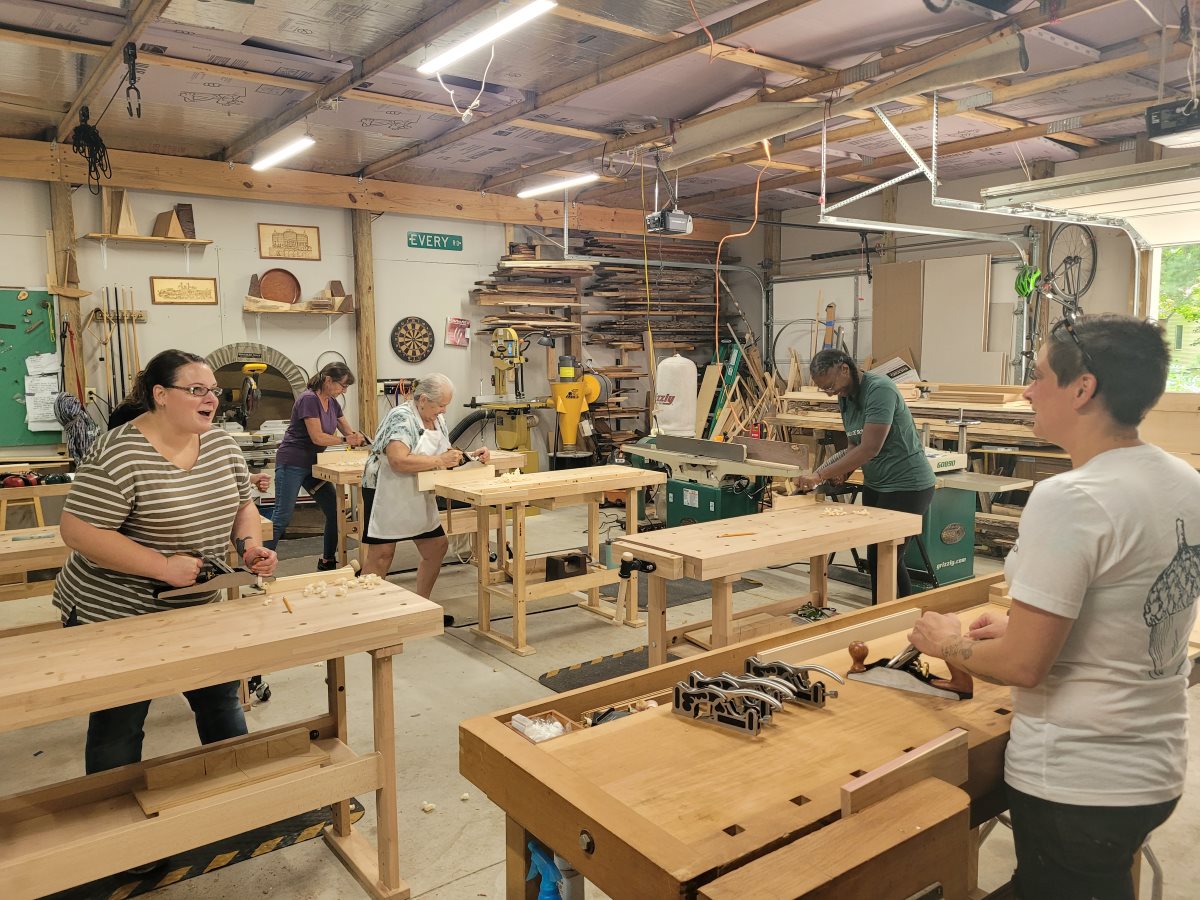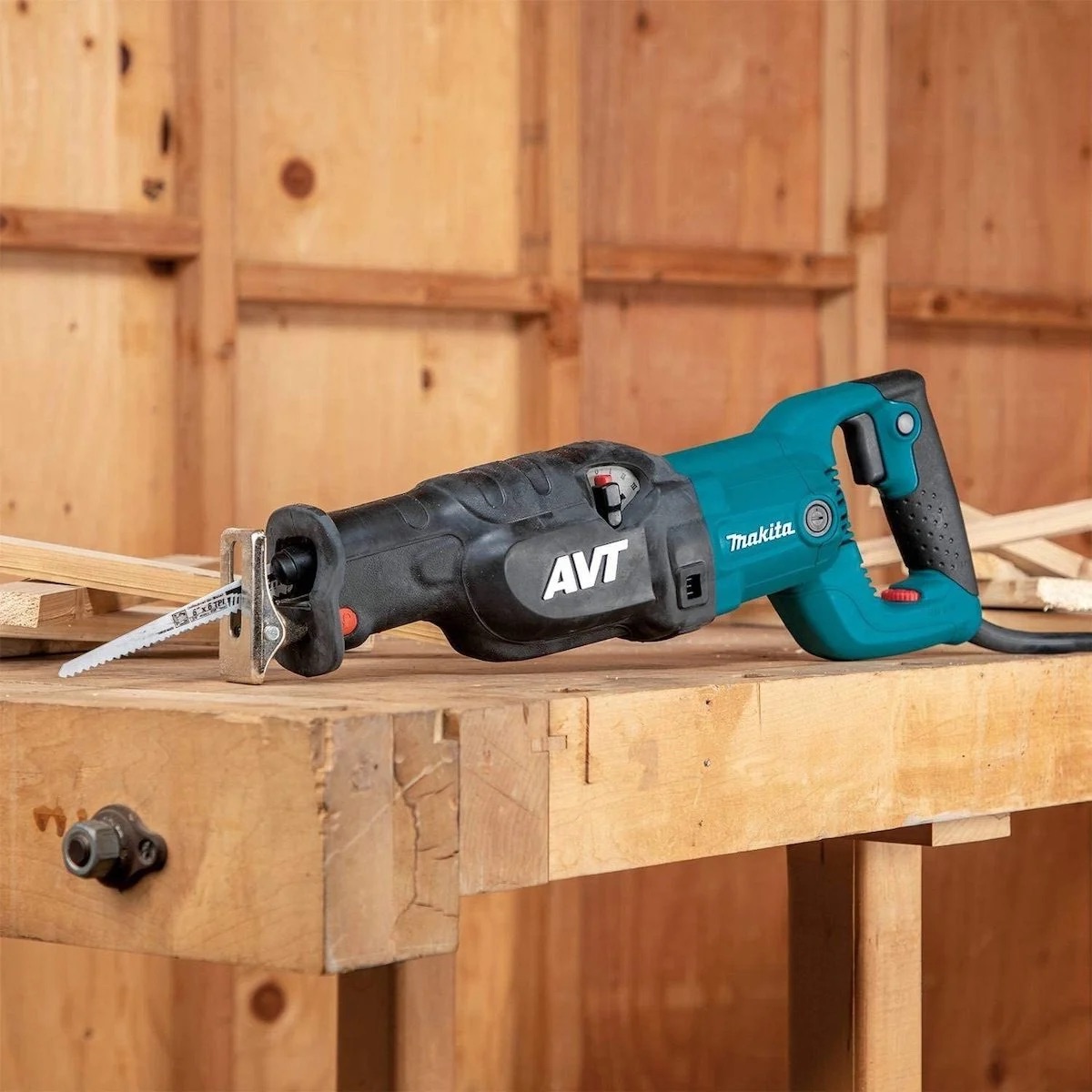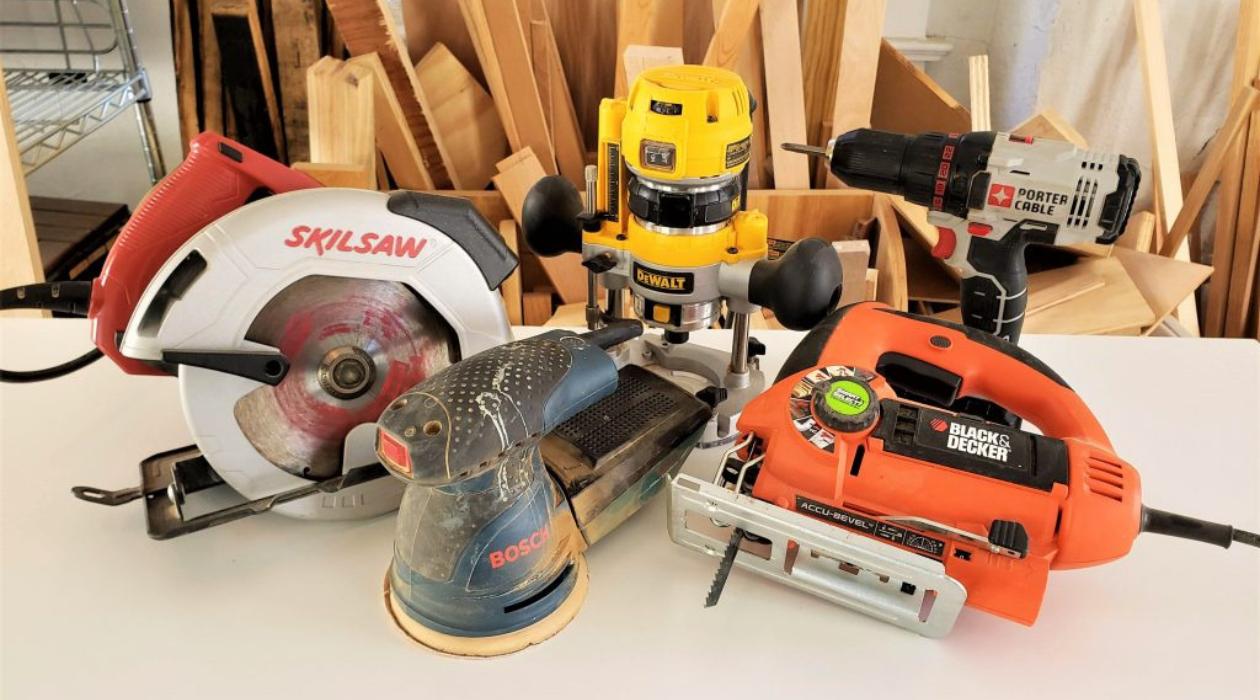

Articles
Where To Take Woodworking Classes
Modified: January 8, 2024
Discover the best articles on where to take woodworking classes and learn new woodworking techniques. Improve your skills with expert-recommended resources and find the perfect classes near you.
(Many of the links in this article redirect to a specific reviewed product. Your purchase of these products through affiliate links helps to generate commission for Storables.com, at no extra cost. Learn more)
Introduction
Woodworking is an art that has been practiced for centuries, transforming raw wood into functional and aesthetically pleasing creations. Whether you are a beginner looking to learn the basics or an experienced woodworker wanting to enhance your skills, taking woodworking classes can be a great way to expand your knowledge and techniques.
Fortunately, there are numerous options available for individuals who want to learn woodworking. From local community centers to online classes, you can find a variety of resources tailored to your specific needs and preferences. In this article, we will explore the different places where you can take woodworking classes and discover which one might be the best fit for you.
Key Takeaways:
- Local community centers offer affordable, interactive woodworking classes with well-equipped workshops, creating a vibrant learning environment for enthusiasts of all skill levels. Embrace the sense of community and expand your woodworking skills.
- Online woodworking classes provide flexibility, expert instruction, and a virtual community for individuals to learn and connect from the comfort of their own homes. Embrace the convenience and embark on your woodworking journey.
Read more: What Is A CAD Class
Local Community Centers
Local community centers are often a hidden gem when it comes to finding woodworking classes in your area. These centers typically offer a range of courses and workshops that cater to various skill levels, from beginner to advanced.
One of the advantages of taking woodworking classes at a community center is that they are often more affordable compared to other options. The fees are usually reasonable, making it accessible to a wider audience. Additionally, community centers tend to create a welcoming and interactive learning environment. You can meet other enthusiasts, share ideas, and learn from each other’s experiences.
Furthermore, community centers often have well-equipped workshops with a wide selection of tools and machinery. This means that you can gain hands-on experience using different types of woodworking equipment. From table saws to chisels, you will have the opportunity to familiarize yourself with the tools of the trade under the guidance of experienced instructors.
Some community centers offer structured woodworking classes with a curriculum that covers the fundamentals of woodworking. These classes usually start with the basics, such as wood selection, measurement, and safety techniques. As you progress, you can choose to specialize in specific woodworking areas, such as furniture making, cabinetry, or woodturning.
If you are interested in taking woodworking classes at a local community center, start by researching the centers in your area. Check their websites or give them a call to inquire about the availability of woodworking courses. Some community centers may require you to register in advance, so it’s a good idea to plan ahead and secure your spot.
Remember, community centers are not just for children and seniors. They are vibrant spaces for people of all ages and backgrounds to come together and pursue their interests. By taking woodworking classes at a community center, you not only learn a valuable skill, but you also contribute to the sense of community and support local initiatives.
Trade Schools and Vocational Programs
If you are looking for a more comprehensive and structured approach to learning woodworking, trade schools and vocational programs can provide a solid foundation. These institutions specialize in hands-on training and offer a variety of courses related to skilled trades, including woodworking.
Trade schools and vocational programs often have dedicated woodworking departments equipped with state-of-the-art tools and machinery. This allows students to gain practical experience using professional-grade equipment under the supervision of experienced instructors.
One of the benefits of enrolling in a trade school or vocational program is that they offer a structured curriculum that covers various aspects of woodworking. From woodworking techniques to furniture design, you can expect to receive a well-rounded education in the craft. These programs often include both classroom instruction and hands-on workshops to ensure a comprehensive learning experience.
Trade schools and vocational programs also offer specialized courses for individuals interested in specific areas of woodworking. Whether you want to focus on cabinetry, joinery, or wood carving, you can choose courses that cater to your specific interests and goals.
Furthermore, these programs often provide career counseling and job placement assistance. If you are considering woodworking as a profession, trade schools and vocational programs can help you build a strong foundation and connect you with potential employers in the industry.
Keep in mind that trade schools and vocational programs usually require a significant commitment of time and money. These programs can range from several months to a couple of years, depending on the level of certification or degree you are pursuing. However, if you are serious about pursuing a career in woodworking or want to develop advanced skills, the investment can be worthwhile.
Before enrolling in a trade school or vocational program, take the time to research and visit different institutions to get a sense of their curriculum, facilities, and reputation. Talk to current or former students to gain insights into their experience and the quality of education provided.
Trade schools and vocational programs offer a comprehensive and immersive learning experience for those interested in pursuing woodworking as a career. Whether you are a beginner or have some woodworking experience, these institutions can help you develop the skills and knowledge necessary to succeed in the field.
Adult Education Centers
If you’re looking for a flexible and affordable option to learn woodworking, adult education centers can be a great choice. These centers offer classes and workshops specifically designed for adults who want to learn new skills or enhance existing ones.
Adult education centers provide a variety of woodworking classes that cater to different levels of expertise. Whether you’re a complete beginner or have some experience with woodworking, you can find a class that suits your needs.
One of the advantages of adult education centers is their flexibility. They often offer evening or weekend classes, allowing individuals with busy schedules to easily participate. This makes it convenient for working professionals or those with other commitments to pursue their woodworking interests without disrupting their daily routines.
These centers typically have well-equipped workshops and experienced instructors who can guide you through the various woodworking techniques. They provide hands-on training and teach you essential skills, such as measuring and cutting wood, joinery, and finishing techniques.
Adult education centers also foster a supportive and collaborative learning environment. You can meet like-minded individuals who share your passion for woodworking, exchange ideas, and learn from one another’s experiences. This sense of community can be both motivating and enriching.
Another benefit of adult education centers is that they often offer a wide range of elective classes or workshops within the woodworking field. This allows you to explore different areas of woodworking and develop expertise in specific techniques or styles. Whether you’re interested in carving, woodturning, or furniture making, you can find a class that aligns with your interests.
When considering adult education centers, it’s important to review their course offerings and ensure they align with your goals and skill level. Some centers may have prerequisite requirements for certain classes, so make sure to check the prerequisites before enrolling.
Overall, adult education centers provide a flexible and accessible option for individuals looking to learn woodworking. Whether you want to pursue woodworking as a hobby or explore it as a potential career path, these centers offer a supportive and engaging learning environment where you can develop your skills and meet fellow woodworking enthusiasts.
Check local community colleges, woodworking shops, and adult education centers for woodworking classes. Online platforms like Skillshare and Udemy also offer a variety of woodworking courses.
Woodworking Workshops and Studios
Woodworking workshops and studios are immersive learning environments that offer hands-on experiences for individuals who want to delve deeper into the craft. These spaces are typically run by experienced woodworkers who share their knowledge and expertise through classes, workshops, and community events.
One of the advantages of attending woodworking workshops and studios is the opportunity to learn from seasoned professionals. You can benefit from their years of experience and learn insider tips and tricks that you might not find in traditional classroom settings. The instructors are often passionate artisans who are dedicated to preserving the craft and passing on their skills to the next generation.
Workshops and studios usually have specialized equipment and tools that are tailored for woodworking. This allows you to work with high-quality tools that are specifically designed for different woodworking techniques. Whether it’s using a lathe for woodturning or a bandsaw for intricate cutting, you can gain hands-on experience with professional-grade machinery.
Additionally, woodworking workshops and studios often offer a range of classes and workshops that cater to different skill levels and interests. From beginner classes that cover the basics of woodworking to advanced workshops on specific techniques or projects, you can find a program that suits your needs.
Another advantage of attending woodworking workshops and studios is the sense of community and camaraderie that you can experience. These spaces often attract a diverse group of woodworking enthusiasts who share a passion for the craft. You can engage in conversations, collaborate on projects, and broaden your network within the woodworking community.
While woodworking workshops and studios offer valuable learning experiences, they may come at a higher cost compared to other options. However, the investment can be well worth it for individuals who are dedicated to honing their woodworking skills and seeking a more immersive learning environment.
To find woodworking workshops and studios in your area, consider searching online, checking local directories, or asking for recommendations from fellow woodworkers or woodworking stores. Research the reputation and reviews of the workshops or studios you are interested in to ensure they align with your goals and expectations.
Attending woodworking workshops and studios can provide you with a unique and enriching learning experience. It allows you to work alongside skilled artisans, utilize specialized tools, and immerse yourself in the vibrant woodworking community.
Read more: What Is A Class A Chimney
Online Woodworking Classes
With the advancement of technology, online woodworking classes have become an increasingly popular option for individuals looking to learn woodworking from the comfort of their own homes. These classes offer flexibility, convenience, and access to expert instruction regardless of your location.
One of the primary advantages of online woodworking classes is the flexibility they offer. You can access the classes at your own pace and schedule, allowing you to learn woodworking around your other commitments. Whether you have a full-time job, family responsibilities, or live in a remote area, online classes provide you with the opportunity to pursue your woodworking interests on your own terms.
Online woodworking classes often provide a comprehensive curriculum that covers everything from the basics to advanced techniques. You can learn about wood selection, tools and equipment, joinery, finishing techniques, and more. The classes are typically structured with video lessons, step-by-step instructions, and downloadable resources to support your learning process.
Another advantage of online woodworking classes is the ability to learn from renowned experts who may be inaccessible through other means. Many online platforms feature well-known woodworkers who share their knowledge and expertise. You can benefit from their insights and techniques, gaining a deeper understanding of the craft and refining your woodworking skills.
Additionally, online woodworking classes often provide interactive elements such as discussion forums, where you can connect with instructors and fellow students. This creates a virtual community where you can ask questions, seek feedback, and engage in meaningful discussions about woodworking. It offers a sense of camaraderie and support similar to what you might experience in a traditional classroom setting.
While online classes lack the physical presence of an instructor, many platforms compensate for this by offering personalized feedback and support. Some platforms allow you to submit your work for review and critique, ensuring that you receive guidance and suggestions for improvement from professionals in the field.
To find online woodworking classes, do some research and explore reputable platforms that specialize in woodworking education. Read reviews, testimonials, and check the credentials of the instructors to ensure you’re investing in a high-quality learning experience.
It’s worth mentioning that online woodworking classes require self-discipline and motivation. Without the structure of a physical classroom, it’s crucial to set aside dedicated time for learning and practice. However, for those who are self-motivated and enjoy the flexibility of online learning, these classes can be a fantastic option to develop your woodworking skills.
Overall, online woodworking classes provide a convenient and accessible way to learn woodworking. They offer flexibility, expert instruction, and the ability to connect with a community of fellow woodworkers. Whether you’re a beginner or looking to expand your skill set, online classes can help you embark on your woodworking journey from the comfort of your own home.
Conclusion
Woodworking is a captivating and rewarding craft that allows individuals to create beautiful and functional pieces from raw wood. Whether you’re a beginner looking to learn the basics or an experienced woodworker seeking to refine your skills, taking woodworking classes can be a fantastic way to expand your knowledge and techniques.
In this article, we have explored several options for where to take woodworking classes. Local community centers provide affordable and interactive learning environments, allowing you to connect with others who share your passion for woodworking. Trade schools and vocational programs offer structured education and specialized training for those interested in pursuing woodworking as a career.
Adult education centers offer flexible and accessible classes for individuals with busy schedules, allowing you to pursue your woodworking interests at your own pace. Woodworking workshops and studios provide immersive experiences, allowing you to learn from skilled artisans and work with professional-grade tools and equipment.
Lastly, online woodworking classes offer convenience and flexibility, allowing you to learn from expert instructors and connect with a virtual community of fellow woodworkers. These classes provide a wealth of resources, personalized feedback, and a comprehensive curriculum that can help you develop your woodworking skills from the comfort of your own home.
When choosing where to take woodworking classes, consider your personal goals, preferences, and learning style. Each option has its benefits and drawbacks, so take the time to research and make an informed decision that aligns with your needs.
No matter which route you choose, remember that woodworking is a journey that requires practice, patience, and dedication. Embrace the process, enjoy the craftsmanship, and be proud of the creations you make along the way.
So, whether you’re a beginner or an experienced woodworker, there’s no better time to embark on your woodworking journey. Start exploring the various options available to you and take the first step towards honing your skills, unleashing your creativity, and turning your woodworking dreams into reality.
Frequently Asked Questions about Where To Take Woodworking Classes
Was this page helpful?
At Storables.com, we guarantee accurate and reliable information. Our content, validated by Expert Board Contributors, is crafted following stringent Editorial Policies. We're committed to providing you with well-researched, expert-backed insights for all your informational needs.















0 thoughts on “Where To Take Woodworking Classes”